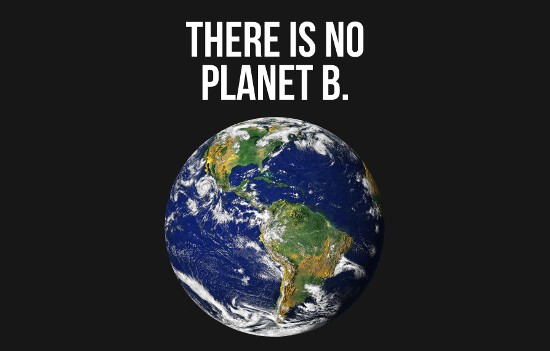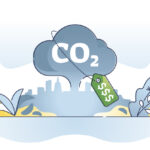The International Energy Agency (IEA) in its latest report “Energy to 2050: Scenarios for a Sustainable Future,” analyzes “the intersection between energy and climate change mitigation.” It describes the transition as fraught with challenges because new energy infrastructure to replace our fossil-fuel-based norms will take time to develop and “longer to reach…maximum market share.” Hence, a thirty to fifty-year view takes us the earliest beyond 2050 and as late as the 2070s. The United Nations 2050 target date for us globally to achieve net-zero emissions from all human activities is forgotten in this analysis and its conclusions.
The report looks at two types of long-term outcomes using exploratory and normative scenarios. Exploratory scenarios address uncertainty factors. Normative scenarios evaluate how to reach targeted outcomes. It is the latter that comes up with prescriptive formulas that lead to policy.
A Fossil Fuel Company’s Take
The 223-page report gives us insight into one fossil fuel company’s exploratory thinking. The company is Shell Oil. Since 1995, the company has produced future-looking 50-year studies that address energy demand for oil and gas and future energy choices that could displace these. In a 2001 version, looking 50 years into the future, Shell poses this question:
“What energy needs, choices and possibilities will shape a global energy system which halts the rise in human-induced carbon dioxide emissions within the next 50 years – leading to a stabilizing of atmospheric carbon 261 levels below 550 parts per million without jeopardizing economic development?”
Note, Shell isn’t even considering bending CO2 emissions parts-per-million (PPM) downward from what was in 2001 369 PPM. Its question assumes a doubling of CO2 levels in the atmosphere from the 280 PPM where we were at the beginning of the Industrial Revolution.
Considering current CO2 levels which have surpassed 420 PPM and global mean temperature rise now over 1 Celsius (1.8 Fahrenheit), that’s 1.5 Celsius over land, and 0.8 to 0.9 over seas) in asking its question, Shell appears to have no concerns about environmental consequences, just economic ones, specifically, those that affect its long-term bottom line.
Why I selected Shell because it is featured in the IEA report. But I wanted to compare Shell’s exploratory question with the public face of the company as represented by its global website where it states full support for “a net-zero world, where society stops adding to the total amount of greenhouse gases in the atmosphere…..to limit the rise in average global temperature to 1.5 Celsius.” The site further professes to pledge itself to become “a net-zero emissions energy business” and goes on to describe that it is “reducing emissions from our operations, and from the fuels and other energy products we sell to our customers.” It talks about “capturing and storing any remaining emissions using technology or balancing them with offsets.” The site includes this statement:
“We are transforming our business to meet our target, providing more low-carbon energy such as charging for electric vehicles, hydrogen and electricity generated by solar and wind power.”
How can you reconcile the company’s web persona with its internal documents that describe its thinking about the future of its energy business?
Other Future Thinkers in the IEA Report
The IEA report looks at actors who are not fossil fuel and energy companies and their future speculations about the energy transition. These include the Global Scenario Group at the Stockholm Environment Institute, the World Business Council for Sustainable Development, the Intergovernmental Panel on Climate Change (IPCC), the Millennium Project, and government research bodies such as Canada’s NRCan, The Netherlands Long-term Outlook for Energy Supply, and The United Kingdom Foresight Program.
In terms of oil and natural gas supplies, even in the face of the Russia-Ukraine war, sanctions, and OPEC production cuts, the world remains awash in fossil fuels. The challenges are supply chain disruptions and the wide swings in resource costs. Supply shocks like the one Europe is currently experiencing tend to be short-lived. Alternate suppliers can be found. But climate change for the fossil fuel industry is a long-term destabilizer.
Leading the Way to a Sustainable Zero-Emission Future
Are any actors whether businesses, governments, or non-government organizations (NGOs) driving us to that 2050 zero-emission outcome?
The IEA report notes that the normative and explorative scenarios to reach a low to zero-emissions 21st-century future require “either technological breakthroughs or truly gigantic efforts from society in terms of strong political will or epochal changes in consumer preference.” Currently, looking at our global progress through the COP annual meetings (next week is COP27) we seem to be spinning our wheels in all three of the aforementioned: the technology, the political will, and consumer motivation and understanding.
A Bank’s ESG Plan for a Sustainable Future
Not in the IEA report is Canada’s largest bank, RBC, revealing its climate blueprint to reduce emissions. RBC is a member of GFANZ, the consortium of banks formed by Mark Carney that at COP27 in Glasgow committed to net-zero emissions by 2050.
As stated by Dave McKay, President and CEO, “We know the greatest impact RBC can have to drive emissions reductions…is through partnerships with our clients. Our initial interim targets will help us track and measure how we’re doing in working with our clients on our ambitious net-zero goals and keep us accountable along the way.”
The bank announced a framework for the sustainable financing of clients with a CDN $500 billion lending target by 2025 based on environmental, social and governance (ESG) objectives with aspirations to have a net-zero portfolio by 2050.
In transition, the bank noted it would continue to fund the oil and gas and power generation sectors. Emissions tracking from these businesses will look at intensification rather than total emissions, in other words, reductions per unit of energy rather than total volume. That means oil and gas companies, and coal and natural-gas-fired powerplant operators will be ESG compliant for the purposes of financing if they show declining emissions per unit of production even if total emissions grow. This is hardly progress on emissions reduction supported by a bank that signed on to net-zero 2050 emissions at COP27.
Tepid Commitments to Climate Change Action
The Shell and RBC examples, unfortunately, are not isolated when it comes to looking at the actions and planning of businesses related to achieving net-zero emissions by 2050. They along with many countries continue to under-commit and underperform. The latest United Nations Environment Program (UNEP) reports that the planet is on track to see atmospheric mean temperatures rise between 2.6 and 2.8 Celsius (4.7 to 5 Fahrenheit) by 2100. Described as both bleak and catastrophic, the UNEP report has been released just before COP27. Described as a dire warning to all of humanity it seems to be falling on deaf ears at the IEA, and in companies like Shell and RBC. Upon release of the report, the Chair of the Climate Crisis Advisory Group admonished government and business noting that we are flying blind into the future. A senior adviser to CONCITO, a Danish think tank and one of the authors of the UNEP report, John Christensen, was quoted by The Toronto Star stating, “If you have grandkids like me and you are thinking about what their lives might be in 50 years or so…we should be ashamed of ourselves that we’re not doing more.”
















